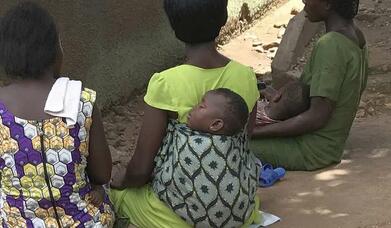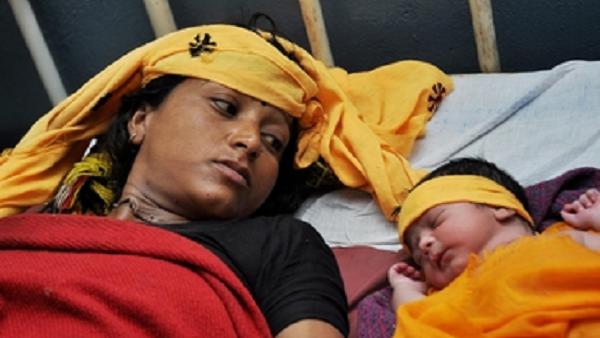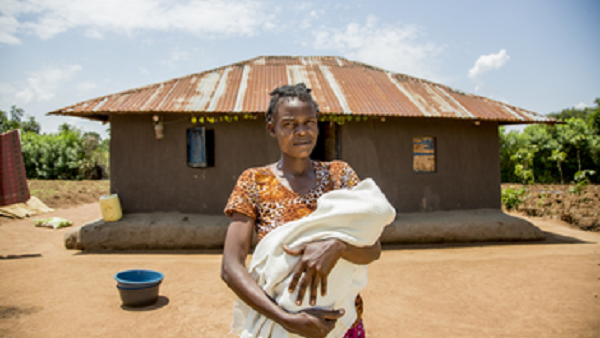
Quality Improvement of Integrated HIV, TB and malaria services in antenatal and postnatal care
The Global Fund and Allied Programmes Unit (GFAPU)
Maternal, perinatal and newborn health is vital to every individual, family, and society.
Yet, despite notable achievements having been made to reduce maternal and newborn deaths, mothers and their babies are still dying in too large numbers – mostly from preventable or treatable causes, such as infectious diseases and complications during pregnancy or childbirth.
Since 2016, The Global Fund to Fight AIDS, Tuberculosis and Malaria has generously funded our research with the aim to deliver a quality improvement process that can be used to systematically assess and improve the availability, quality and efficiency of integrated HIV, TB and Malaria services provided at health facilities in antenatal and postnatal care.
The Global Fund and Allied Programmes Unit (GFAPU) at LSTM is committed to helping achieve this aim. Our team members have a sound background in maternal, newborn and child health and extensive experience conducting all stages of implementation research. We collaborate with partners and governments in host countries to design, deliver and implement a research programme for improving antenatal and postnatal care and by doing so saving the lives of mothers and their babies.
Pregnant women and newborns represent a high-risk group for HIV, TB and malaria. GFAPU collaborates with partners and governments in host countries to deliver an implementation programme for quality improvement of integrated HIV, TB and malaria services in antenatal (ANC) and postnatal care (PNC), with an overall aim of improving maternal and newborn health outcomes. This includes building capacity of healthcare providers, as well as more broadly supporting health systems strengthening, with in-built monitoring and evaluation (M&E) and operational research, and more broadly evidence generation to inform planning and policy-making.
Since 2017 the Global Fund programme has completed activities in Afghanistan, Ghana and Niger, is currently operating in Chad, Nigeria and Togo, and is planned to commence in Kenya and Tanzania.

What we do
The Global Fund and Allied Programmes Unit is dedicated to improving the health of mothers and babies. We deliver our commitment through programmes aimed at improving the availability and quality of integrated, people-centred health services.

Working with in-country partners
We work through and with the Ministry of Health (MOH) and in-country partners to design, implement and evaluate programmes. By adapting and aligning our interventions to existing health systems, we build capacity and provide tailored activities and technical assistance to support countries in strengthening their health systems, as well as generating evidence for policy-making.
Our partners are vital to the development of workplans and details of implementation. In order to provide a platform for sustainability, all aspects of a programme are gradually ‘handed-over’ to the Ministry of Health and aligned to national activities, with LSTM standing by as a partner for technical assistance and supporting quality assurance. This approach includes building and/or strengthening the capacity of master trainers and supervisors, who can continue training and support of healthcare providers beyond the timelines of programmes.
Evidence-based decision making
To provide evidence for decision-making, we develop and apply indicators and frameworks which can be used to assess the availability and quality of healthcare, health outcomes and health system functioning. In collaboration with partners, we design research studies which evaluate the implementation of single or complex interventions regarding their feasibility, scalability, effectiveness and impact. We strive to discover and share what works, how and why, to reduce maternal and perinatal mortality and to improve health and healthcare delivery, as well as working to strengthen existing data collection methods and data use.

Implementation Programme
The plan is broken down into five elements. These interventions are introduced to participating healthcare facilities in a phased manner, with regular monitoring and evaluation to monitor the process and outputs of implementation.
Completed projects
-
Refresher training in Antenatal and Postnatal Care delivered in Togo
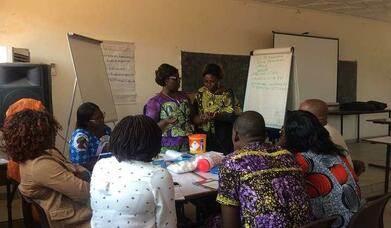
-
Improving quality of care and measuring efficacy: Two weeks of training with healthcare providers in Togo
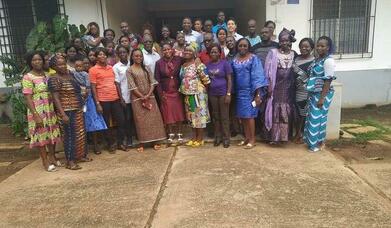
-
First national quality of care assessment in Niger completed
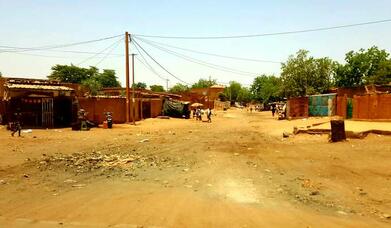
-
Supporting the Ministry of Public Health to conduct a national quality of care survey in Niger
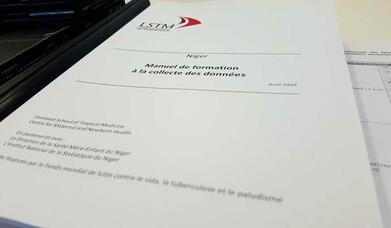
-
Integrating screening for and follow up of HIV, TB and malaria into both ante-natal and post-natal care in Togo
